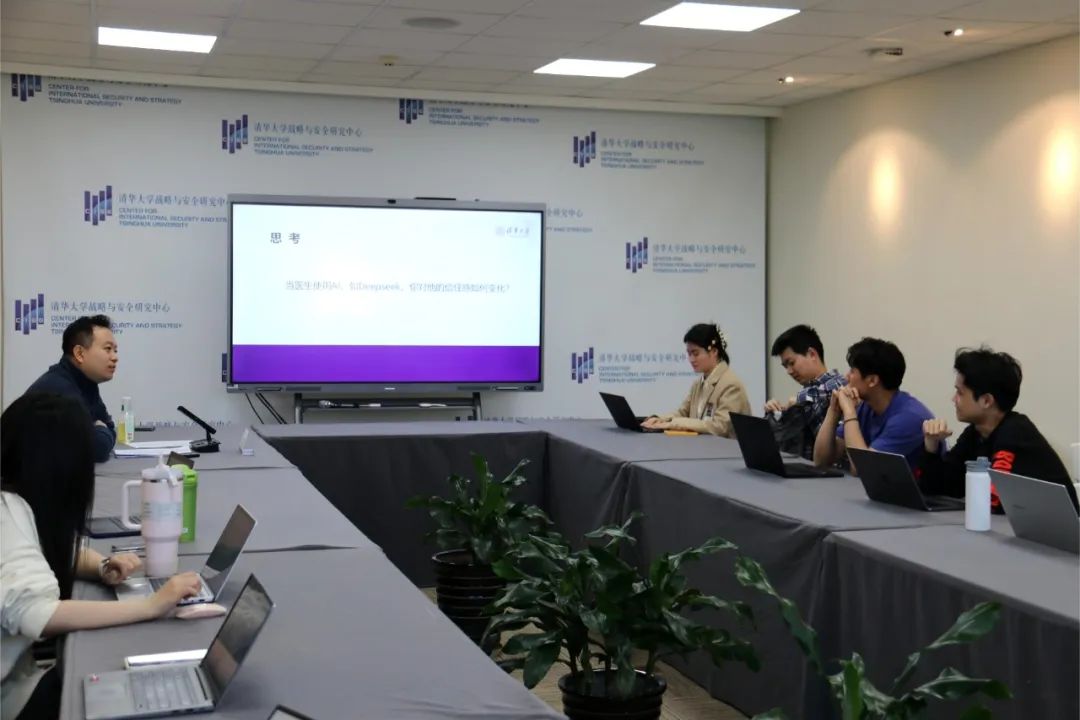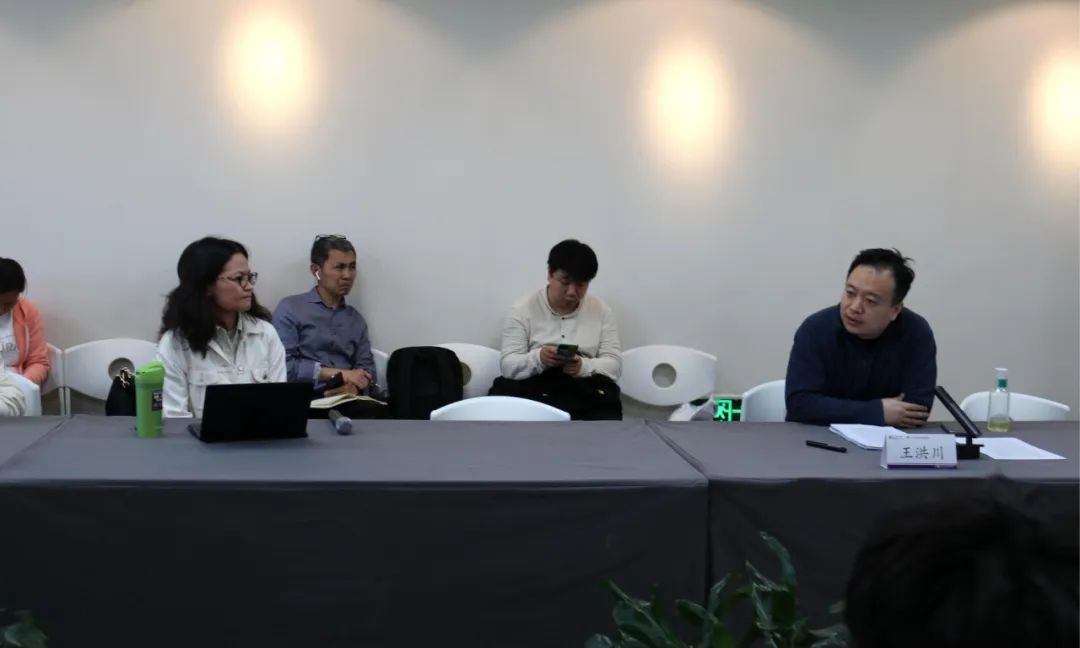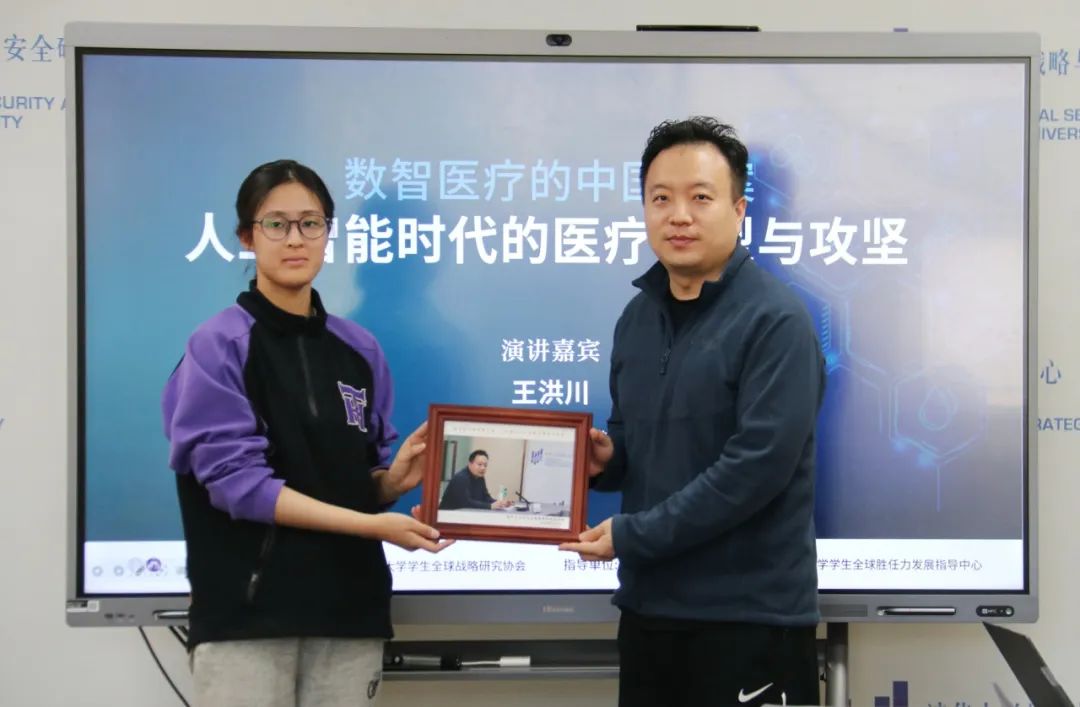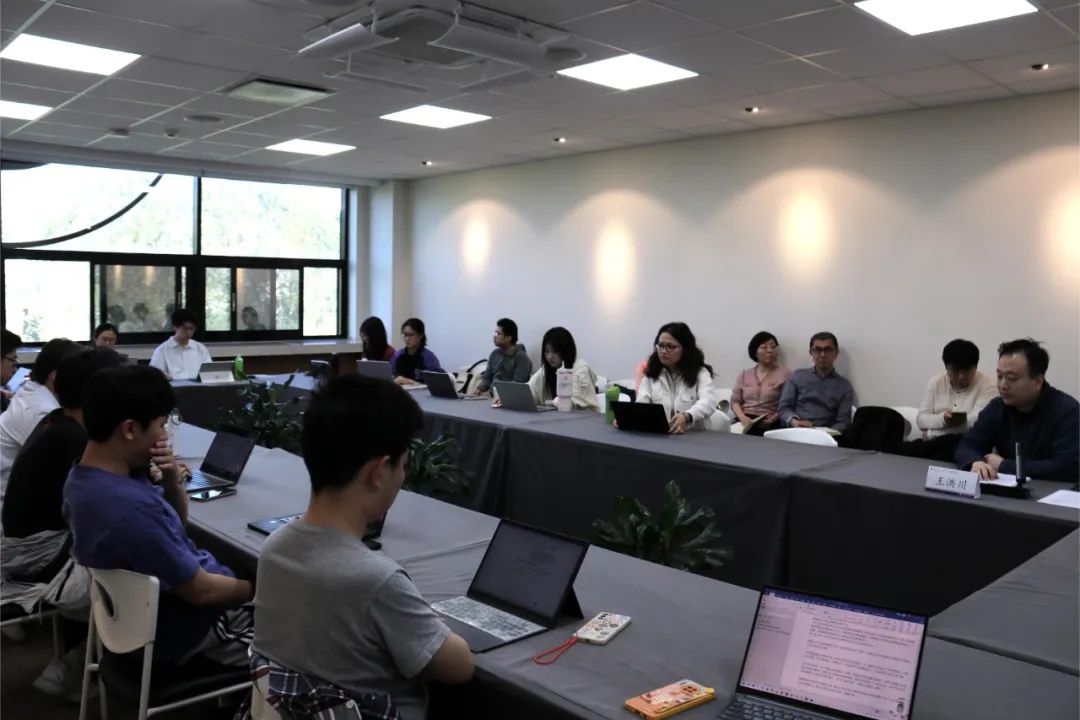On April 24, 2025,the Tsinghua University Student Association for International Strategic Studies (THUSAISS), under the guidance and support of the Center for International Security and Strategy(CISS) and Center for Global Competence Development at Tsinghua University, hosted a lecture featuring Associate Professor Wang Hongchuan from the School of Public Policy and Management at Tsinghua University. Themed “The Chinese Approach to Smart Healthcare: Medical Transformation and Breakthroughs in the Age of Artificial Intelligence,” the lecture offered a comprehensive overview of the current state of AI in healthcare globally and in China, while providing an in-depth analysis of the key challenges faced by the industry. It also presented a vision of how China’s healthcare system is being transformed in the digital and intelligent era.
Drawing on his original research, Professor Wang discussed the development of AI technologies in the healthcare sector. He pointed out that internationally, AI applications are mainly concentrated in areas such as prevention, treatment, health maintenance, rehabilitation, and healthcare management, especially in advancing precision medicine and value-based healthcare. In recent years, China has made notable progress in AI-assisted diagnostics and AI general practitioners. These innovations have not only provided intelligent support for grassroots medical institutions but also significantly improved diagnostic accuracy and treatment efficiency, accelerating the intelligent transformation of healthcare services.

Professor Wang then explored the multifaceted challenges facing AI in healthcare. He emphasized that a major internal challenge lies in the shortage of interdisciplinary talent—professionals who possess both medical expertise and digital technology skills. Although some institutions have established talent centers to address this issue, the inherently regional nature of the healthcare system has exacerbated the talent gap. Externally, challenges include healthcare workers’ acceptance of new technologies, their learning processes and coping strategies, and issues of human-machine collaboration and institutional regulation during the implementation of AI technologies. These governance challenges must be addressed holistically through top-level design and systemic planning, as they involve aspects of technological understanding, medical education, and social governance.
In the Q&A session, Professor Wang responded to students' questions on topics such as the impact of AI on medical education systems and the gap between medical education theory and practice. He emphasized the importance of enhancing AI-related training for medical professionals to improve their capacity to use and adapt to AI-assisted tools. Leveraging professional knowledge effectively is key to unlocking the full potential of AI in empowering healthcare.



